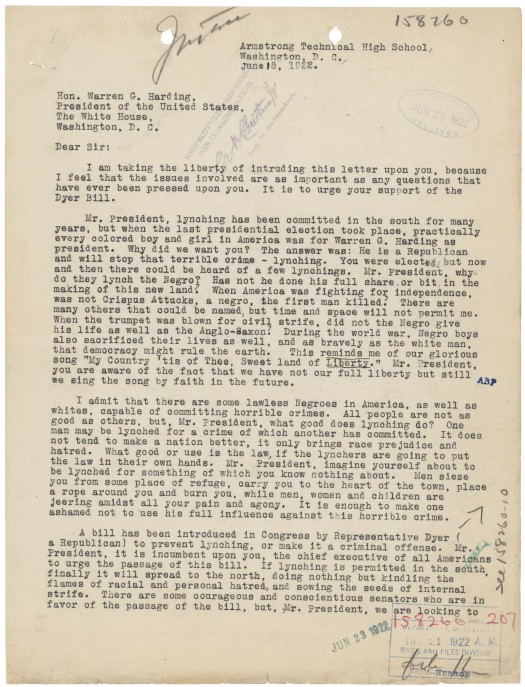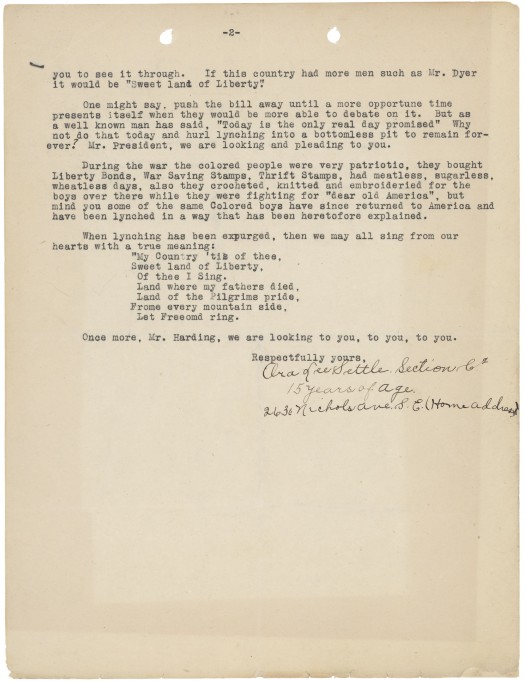An Anti-Lynching Letter in Support of the Dyer Bill (1922)…
Between 1892 and 1940, over 3,000 people, overwhelmingly black (2600), were lynched in the U.S. In the 1890s, black women led by Ida B. Wells-Barnett, protested lynching and gave birth to a massive anti-lynching movement. The NAACP made lynching a cornerstone of its racial justice campaign when it was founded in 1909. In the 1920,the NAACP began to push for federal anti-lynching legislation through the Dyer bill. The NAACP tried to pass the bill for 20 years and relied heavily on black and white women to push this effort. Women were central to anti-lynching activism. As Mary Jane Brown (2003) writes black and white women activists “headed committees, raised money, rallied supporters, testified in congressional hearings, and acted in key advisory roles in a cooperative interracial relationship (p.379).” Some of the key black women who led the anti-lynching crusade were Wells-Barnett, Mary Church Terrell, Nannie Burroughs, Hallie Q. Brown, Addie W. Hunton, Daisy Lampkin, Mary B. Talbert, and many others. Some of the white women who were anti-lynching activists included Mary Maclean, Harriet Stanton Blatch, Anna Garlin Spencer, Susan Wharton. Lenora O’Reilly, Mary White Ovington, Lillian Wald, Mary E. Wooley, and others.
Since 1920 was an election year, the NAACP tried to get Republican candidate Warren G. Harding to support the Dyer bill. Over the years, thousands of letters poured into various Presidents about lynching. Below is a letter from Ara Lee Settle to Warren G. Harding regarding lynching dated 06/18/1922 from the National Archives. The letter was part of a campaign to get the Federal government to pass the Dyer bill.
Ultimately anti-lynching legislation was not passed by Congress. Yet the activism and agitation around lynching and the campaign to pass the Dyer bill helped to put a needed spotlight on the practice. Women activists succeeded in reducing actual instances of lynching.


